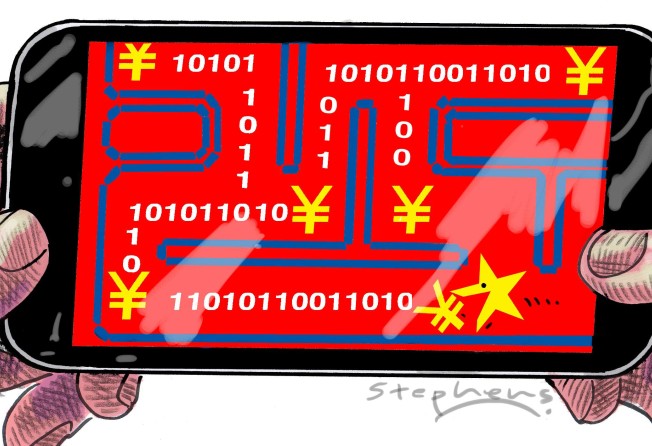
How China’s mobile game developers can succeed in 2017
Yujia Zhu says China’s booming mobile game market will continue to reward developers who innovate in the face of changing rules and consumer tastes. To succeed, they must embrace data analytics


According to analysts, the sector is expected to grow further, reaching an estimated worth of US$8.3 billion in 2017.
Here are three things game developers should be aware of as 2017 approaches.
As it stands, the mobile gaming market in China can prove a challenge for developers looking to break into the scene.
A few major companies dominate the market, and there is an ongoing trend of mobile game publishers spending millions to acquire new users and launch games globally.
Independent game developers will have to compete based on their creativity, nimbleness and speed of innovation.
One example of a successful Chinese indie mobile game developer demonstrating these characteristics is Tian Jin Lai Wan Network. Eschewing the usual formulas leveraged to create popular mobile games, the developer instead created a calming gaming experience – a novel concept. Its game, KOI – Journey of Purity, was such a hit on mobile that it was relaunched on the PS4, making it the first-ever Chinese-made mobile game to cross over to the console.
In truth, increased regulations will increase consumer confidence in new mobile games
However, as Chinese consumers become more accustomed to free mobile games, downloads no longer guarantee financial success. And as traditional pay-to-install revenue models are increasingly shunned, mobile game developers will need to find new ways to monetise their creations, and quickly.
Looking towards 2017, Chinese mobile game publishers will probably pivot towards monetisation of apps as venture capitalist funding slows and bank credit tightens.
These publishers, who have focused on user acquisition in recent times, will now need to shift their attention to monetising and retaining their users instead.
The forward-looking Chinese government has recognised that people will not use technology they do not trust, mobile games included. The good news is China is getting stricter on its regulation of mobile applications and games, which will ultimately help make monetisation easier.
Earlier this year, the Cyberspace Administration of China and the State Administration of Press, Publications, Radio, Film and Television issued new regulations aimed at tightening control of the country’s mobile app environment. Rules have also been put in place that focus on ensuring app stores oversee and double-check all apps they provide to maintain the stores’ integrity.

A knee-jerk reaction would be to view the new regulations as an obstacle to game developers’ development and launch of mobile games. In truth, increased regulations will increase consumer confidence in new mobile games, and are likely to further boost the quality of new releases.
Ultimately, this will make Chinese mobile games more appealing for both local and overseas consumers and advertisers, opening the door for well-made Chinese mobile games to secure an international audience.
There has never been a better time to make a splash in the Chinese mobile gaming market
All in all, the new regulations represent a bold and astute move by the Chinese government.
Additionally, tighter regulations will make mobile games appealing to firms looking to place mobile advertisements, which means better monetisation for indie firms and the titans alike.
Indeed, there has never been a better time to make a splash in the Chinese mobile gaming market.
In terms of current obstacles for Chinese mobile game developers, the main issue is that, much as they understand what makes a great mobile game, they don’t necessarily understand how to effectively market and monetise their products. Indeed, in China, there are many options for players to choose from, and the majority of users expect mobile games to be free.
Working closely with a publisher who understands the market is one way to ensure that your game aligns with local tastes.
Some publishers will even go as far as to help developers localise their content, adapt storylines and even alter art styles to increase local appeal. But ensuring your game is appealing is just the first step.

Come 2017, data will be king in China’s mobile gaming scene. Game developers and publishers alike will be even more heavily focused on tracking numerous data points to understand the marketing spending required to gain new users, while at the same time charting how they can maximise monetisation through in-app purchases or advertising revenues.
Developers who use data to optimise their return on investments will gain a competitive edge that will only continue to yield greater advantages over time as they reinvest revenue into user acquisition.
There are many ways game developers can use data to build, test and monitor their marketing campaigns as well as the performance of their games in the local market. The tools and the talent are readily available; it is now just a matter of committing to the notion that data and analytics are crucial to success and acting on that commitment.
In summary, today’s game developers should seek to innovate, explore diverse monetisation methods, and embrace the new regulations that will cultivate quality games.
Moreover, they cannot afford to ignore adopting a data-centric approach, especially if they wish to make a splash in the Chinese mobile games market, one that will only continue to grow.
Data is, in fact, key to the success of the mobile gaming sector in China.
Yujia Zhu is a senior business development manager at AppLovin, a leading mobile marketing platform